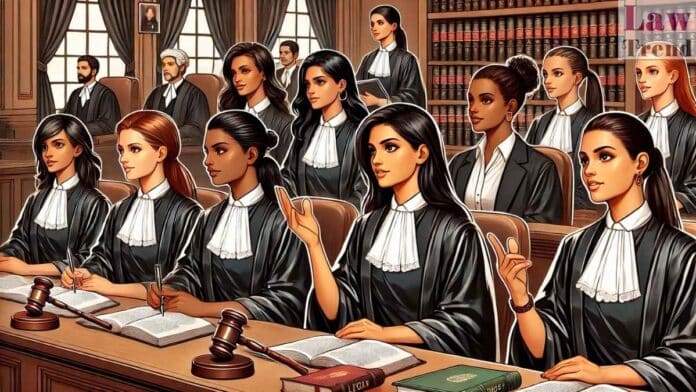In a significant move towards gender inclusivity in legal institutions, the Supreme Court on Friday directed that the post of treasurer and 30 percent of the executive committee seats in the Gujarat High Court and District Bar Associations be reserved for women lawyers.
The order was passed by a Bench comprising Justice Surya Kant and Justice N.K. Singh in the case Meena A. Jagtap v. Bar Council of India. The Court was hearing a petition filed by Meena A. Jagtap, a practising advocate at the Gujarat High Court, seeking 33 percent reservation for women in Bar Associations and the Bar Council of Gujarat.
While granting partial relief, the Court clarified that the prayer regarding reservation in the Bar Council of Gujarat would be considered at a later stage, keeping in view broader implications for all State Bar Councils and the Bar Council of India.
The petitioner had relied on the Supreme Court’s earlier judgment in Supreme Court Bar Association v. B.D. Kaushik, contending that the absence of women’s reservation violates Articles 14, 15, and 16 of the Constitution of India. The petition also highlighted India’s obligations under the United Nations Convention on the Elimination of All Forms of Discrimination Against Women (CEDAW).
“While women are increasing day by day and are being registered as lawyers in State of Gujarat, their representation in leadership positions remains negligible. This disparity affects young women lawyers particularly, as issues specific to women practitioners can only be fully understood and addressed by women representatives in decision-making positions,” the petition stated.
It further emphasized India’s cultural reverence for women, asserting that ancient Indian traditions held women in high esteem and treated them as equals. “Women are venerated as ‘Devi,’ the embodiment of divinity and power,” the plea noted.
The Supreme Court had earlier issued similar directions for reservation of seats for women lawyers in bar associations of the Supreme Court, Delhi, Karnataka, and Bengaluru.
On Friday, the Court remarked that “there is no justification to adopt a different position with regard to Gujarat,” thereby extending the same principle of gender representation to the State’s legal associations.




